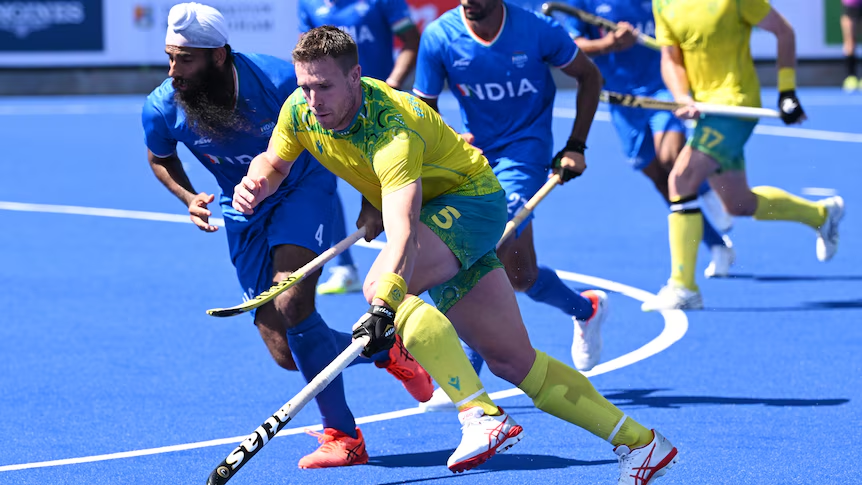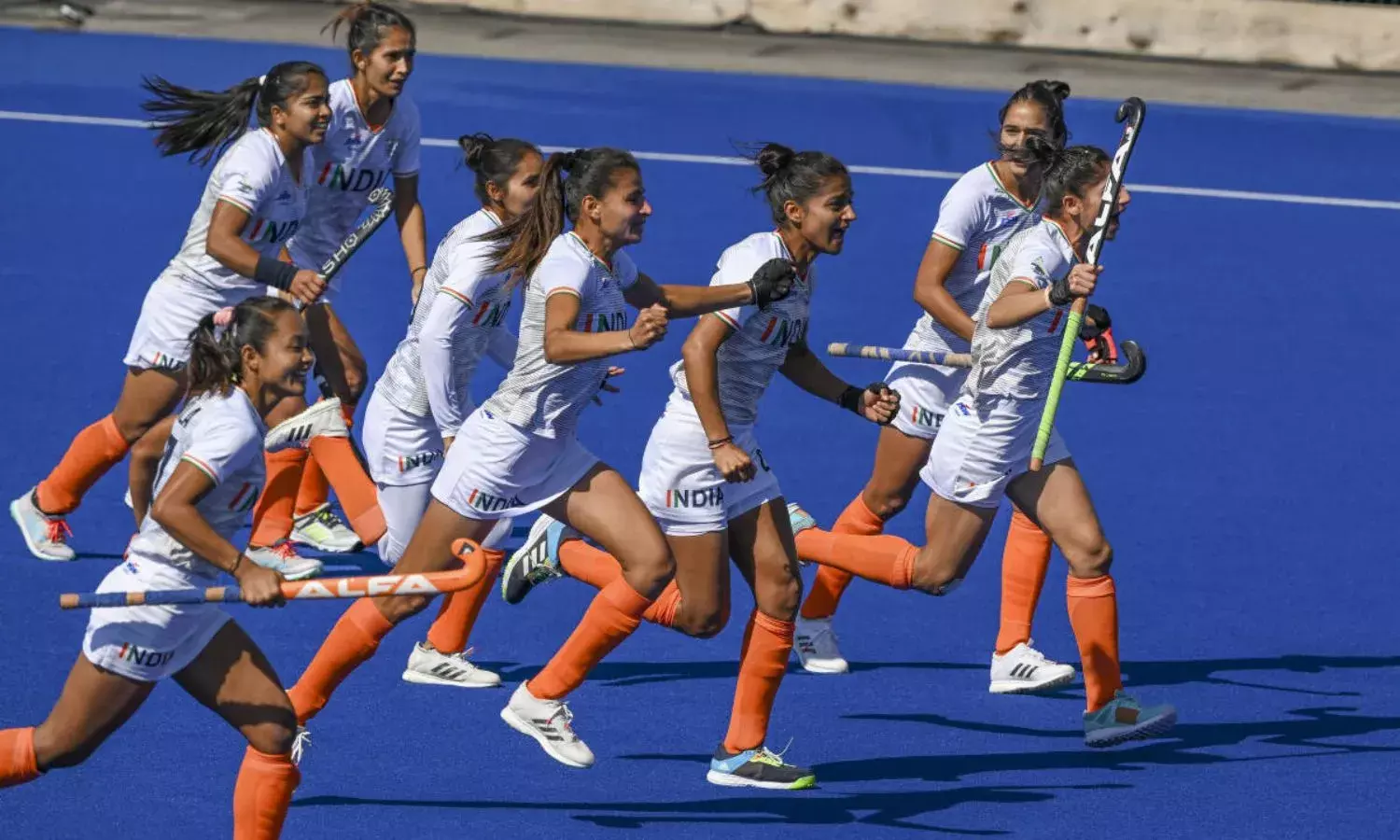The Commonwealth Games 2026 in Glasgow will see a major reshuffling of its sports roster, leaving key sports like hockey, badminton, wrestling, and cricket out. India, one of the major contributors in terms of medals, is poised to feel a significant impact from these changes.
The 2026 Commonwealth Games, set to take place from July 23 to August 2, will be hosted by Glasgow, Scotland. However, the unveiling of a pruned roster of only 10 sports has raised concerns across several nations, especially India. The decision to drop several popular sports like hockey, badminton, wrestling, cricket, table tennis, squash, and shooting, is primarily aimed at making the event more budget-friendly and manageable.
A Financial Decision with Far-reaching Implications
The Glasgow organizing committee has taken these steps to reduce operational risks and limit the expenses associated with the Games. With only four venues hosting the entire showpiece event, the overall number of disciplines has been significantly reduced compared to previous editions.
In an official statement, the Commonwealth Games Federation (CGF) justified the decision, citing the need to balance the multi-sport appeal of the Games with the financial and operational realities.
Read : Allyson Felix Launches First-Ever Olympic Village Nursery for Athletes’ Kids at Paris Olympic 2024
“Cost and operational risk were the main drivers. Every venue introduced brings added costs and complexity for venue hire, security, and transport,” the organizers explained, emphasizing the challenges posed by adding extra venues. Keeping the Games confined to just four venues within an eight-mile radius would also streamline logistics and ensure the event runs smoothly.
While these adjustments may help Glasgow deliver a financially sustainable event, they come at the expense of several sports that have been integral to the Games for years. For India, a country where sports like hockey, badminton, wrestling, and shooting have historically been major contributors to its medal tally, the exclusion of these sports from the 2026 roster is a massive blow.
Impact on India’s Medal Prospects
India’s impressive track record at the Commonwealth Games has been built on its dominance in several of the dropped sports. Hockey, in particular, has been a significant medal source for the country, with both the men’s and women’s teams consistently performing well in previous editions. The men’s hockey team has won three silver and two bronze medals, while the women’s team has also shone, securing three medals, including a historic gold in 2002.
Similarly, badminton has been one of India’s strongholds, with the country amassing an impressive 31 medals in the sport, including 10 golds, eight silvers, and 13 bronzes. In the 2022 edition of the Games, India entered as defending champions in men’s and women’s singles, as well as men’s doubles.
The nation’s badminton prowess has grown steadily over the years, with stars like P.V. Sindhu, Kidambi Srikanth, and Saina Nehwal bringing home numerous accolades on the global stage. The exclusion of badminton from the 2026 Commonwealth Games roster represents a lost opportunity for India to further solidify its position as a badminton powerhouse.

Wrestling is another sport where India has excelled historically. Over the years, Indian wrestlers have bagged a total of 114 medals, including 49 gold, 39 silver, and 26 bronze. With such a rich history of success in the sport, the removal of wrestling from the Commonwealth Games is a significant setback for Indian athletes who have long relied on the Games as a platform to showcase their talents on the international stage.
Shooting, too, has been a stronghold for India, with a staggering 135 medals won over the years, including 63 golds, 44 silvers, and 28 bronzes. Indian shooters have consistently dominated the Commonwealth Games shooting events, and the country’s exclusion from this category is a massive blow to its overall medal prospects.
Shooting was previously excluded from the 2022 Birmingham Games due to logistics, and its continued absence in the 2026 edition only adds to India’s woes.
The omission of cricket, which made a comeback in the 2022 Birmingham Games with the Indian women’s team winning silver, is another blow to India’s medal hopes. Cricket holds a special place in the hearts of Indian sports fans, and the absence of the sport from the 2026 Games leaves a void that will be hard to fill.
A Streamlined Event with an Eye on Sustainability
While the exclusion of these key sports has raised concerns in India and other nations, the Glasgow 2026 organizing committee has stressed that the decision to streamline the event was based on the need to manage financial and operational risks.
Hosting a multi-sport event of this magnitude comes with significant logistical challenges, and the decision to concentrate the Games in just four venues within a limited radius is intended to minimize costs and ensure a smooth operation.
The 2026 Commonwealth Games will take place at Scotstoun Stadium, Tollcross International Swimming Centre, Emirates Arena (including the Sir Chris Hoy Velodrome), and the Scottish Event Campus (SEC).
These four venues will host all the events across the 10 included sports, which are athletics and para athletics (track and field), swimming and para swimming, artistic gymnastics, track cycling and para track cycling, netball, weightlifting and para powerlifting, boxing, judo, bowls and para bowls, and 3×3 basketball and 3×3 wheelchair basketball.

The decision to limit the number of sports is also seen as a response to the financial difficulties faced by the original host, the Australian state of Victoria, which pulled out of hosting the 2026 edition due to rising costs. Scotland stepped in to save the Games, but with a more streamlined model to ensure the event could be delivered without requiring public funding.
The CGF has emphasized that the streamlined approach will not only reduce costs but also bring substantial economic benefits to Glasgow and the surrounding region. The Games are expected to deliver over 100 million pounds of “inward investment into the city” and are projected to add an economic value of over 150 million pounds to the region. The organizers have also highlighted that the event will not require public funding, thanks to a specially designed model.
While this streamlined approach may help ensure the financial sustainability of the event, it comes at a significant cost to nations like India, whose medal prospects have been greatly diminished by the exclusion of key sports.
The Road Ahead for Indian Athletes
The exclusion of sports like hockey, badminton, wrestling, shooting, and cricket from the 2026 Commonwealth Games leaves Indian athletes in a difficult position. With the nation’s traditional strongholds removed from the roster, India’s overall medal tally is likely to take a hit. However, Indian athletes will still have opportunities to shine in the sports that remain on the 2026 programme.

Para-athletes, in particular, will continue to have a strong presence at the Games, with para sports being fully integrated into the event. Since their inclusion in the 2002 Manchester edition, para sports have been a key component of the Commonwealth Games, and the 2026 edition will be no different.
Para athletics, para swimming, para track cycling, para powerlifting, para bowls, and 3×3 wheelchair basketball will all feature prominently in Glasgow.
In addition to para sports, Indian athletes will also have opportunities to compete in athletics, boxing, weightlifting, judo, and artistic gymnastics, where they have historically performed well. While the exclusion of certain sports represents a significant blow to India’s overall medal prospects, the nation still has talented athletes capable of making their mark in other disciplines.
The road ahead for Indian athletes will require resilience and adaptability, as they adjust to the new realities of the 2026 Commonwealth Games. With key sports missing from the roster, the challenge will be to find success in the remaining disciplines and continue to build on the nation’s impressive Commonwealth Games legacy.

